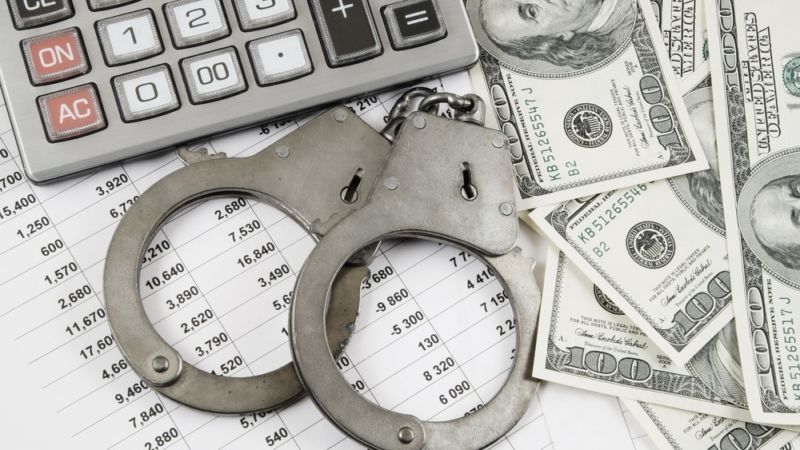E-commerce fraud — while technically not money laundering — is quickly becoming a popular way for international criminals syndicates to launder their money
Late last year, the online news and gossip site The Daily Beast created a minor furor when it published a story alleging that, based on information obtained from online Russian crime forums, Russian money launderers were using the AirBnB home-sharing service to launder their ill-gotten gains.
According to the story, the scammers use various websites and forums to locate legitimate, licensed AirBnB hosts who are willing to engage in illicit, under-the-table fraud. Having located such a person, the scammers use stolen credit-card information to book bogus stays at the legitimate AirBnB property. The cooperative “host” then processes the payment, returns half the money to their partners in crime, and keeps half for themselves.
New Variations on Old Schemes
Technically speaking, however, this type of scam is not money laundering per se. Rather, it is a way to extract value out of stolen credit cards, a practice known as “carding” or “transaction laundering.” And according to Dennis Lormel, former chief of the FBI’s Financial Crimes Program, AirBnB isn’t the only e-commerce site where such activities take place.
“To money launderers, sites like AirBnB and Uber are facilitation tools,” says Lormel. “It’s not just Russians — these guys can use almost any type of e-commerce activity to launder money, particularly if they are working with an accomplice who runs a legitimate business.”
In Lormel’s view, the AirBnB scam and other types of e-commerce fraud are variations on old-fashioned, pre-Internet laundering schemes. Indeed, they mirror one of the favorite laundering methods used by drug cartels and other criminal organizations that need to clean large quantities of cash on a regular basis — namely, corrupt hotels and casinos.

“Before e-commerce, the most straight-up way to launder money was through hotels and casinos,” Lormel says. “The way it works is that the ‘legitimate’ part of the hotel business might fill half the rooms, but on the books it looks like the place is operating at full capacity all the time.”
The New Frontier: Trade-Based Money Laundering
In law-enforcement circles, such activities are known as “trade-based money laundering,” a practice in which “legitimate” businesses over-value or under-value products or services they are selling, then create bogus invoices and receipts to hide the discrepancies. The “laundering” happens in the gap between the actual sale price and the price claimed on the receipt.
According to John Cassara, a former special agent for the U.S. Treasury and author of the book Trade-based Money Laundering: The Next Frontier in International Money Laundering Enforcement (Wiley 2015), trade-based money laundering, or TBML, represents a growing existential threat to legitimate commerce all over the world.
“TBML is… one of the most opaque, least known and understood, and most under-enforced money-laundering techniques,” Cassara writes. The practice has a destructive effect on legal commerce by “putting legitimate businesses at a competitive disadvantage, creating a barrier to entrepreneurship, and crowding out legitimate economic activity.”
Furthermore, he says, “TBML often robs governments of tax revenue due to the sale of underpriced goods, and reduces duties collected on undervalued imports and fraudulent cargo manifests.”
The reason e-commerce has become such a popular way to launder money is that it’s easy to manipulate the alleged “value” of a product, especially if you are the one selling it — and because the risk of getting caught it so low.
“If they’re reasonable and conservative about it, this kind of fraud is hard to detect,” says Lormel. But people with extra cash in their pockets often can’t resist spending it, and therein lies the danger. “Law enforcement and financial institutions all have monitoring software with algorithms that detect fraudulent activity through anomalies, inconsistencies, and odd patterns that don’t add up,” says Lormel.
Worth the Risk?
That said, it’s typically the half-legitimate person with the real account or merchant license — with AirBnB, Uber, or whomever — who is taking the bulk of the risk in such arrangements. The criminals on the other end of the transaction are usually anonymous and operating out of a different country, making it that much more difficult for authorities to track them down.
For their part, AirBnB, Uber, and other popular service-sharing sites all have mechanisms in place for detecting and preventing fraud, but if the licensed user is intentionally using the service or some other e-commerce site as a platform for deception, and they are “smart about it,” says Lormel, the fraudulent activity can go undetected for some time. “The reality is that this is a relatively unregulated space, which allows bad guys to fly under the radar.”
Still, if you are an AirBnB host or an Uber driver or an e-commerce entrepreneur who is considering making some extra cash on the side by accepting stolen credit-cards or dirty cash, Lormel’s advice is simple: Don’t do it. “People who are doing this kind of thing aren’t thinking it through very well,” he says. “In my experience, the weight of the fraud eventually collapses and comes crashing down on people.”
Time, repetition, greed, and stupidity are a fraudsters biggest enemies, Lormel says — and when the FBI comes knocking on your door, it’s usually too late to avoid being crushed.







